Wisconsin is full of agricultural abundance, with more than 300 farmers’ markets and 900 school and educational community gardens. The state is known for producing cranberries, snap beans, cherries, sweet corn and more.
“We are a rich state of farming traditions and agriculture,” says Daithi Wolfe, early education policy analyst at Kids Forward, a statewide research and advocacy organization. “We have a large number of Hmong farmers, Native folks growing traditional foods, and Black and Latinx farmers.”
Even with the ample amount of healthy foods grown in Wisconsin, there are still over half a million people struggling with food insecurity, including one in seven children.1 The issue isn’t a lack of nutritious food, it’s unequal access to and distribution of locally grown foods.
“Farm to early care and education is connecting kids to food production and natural spaces – and rebuilding those very human connections to a sense of place and the confidence to grow and select their own food."
Hawthorn McCracken,
early care and outreach specialist at Rooted
A promising community-based solution to improving access to healthy foods for young children and their families is farm to early care and education. Through increasing access to fresh fruits and vegetables and learning about local agriculture, farm to early care and education programs teach kids about where their food comes from and provide critical nutrition support for healthy development.
“Farm to early care and education is connecting kids to food production and natural spaces – and rebuilding those very human connections to a sense of place and the confidence to grow and select their own food,” says Hawthorn McCracken, early care and outreach specialist at Rooted, a Wisconsin-based nonprofit devoted to increasing access to land, fresh food and learning opportunities.
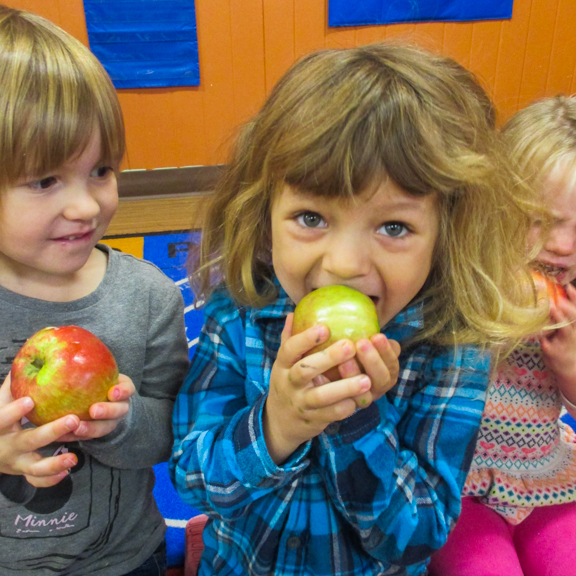
A collaborative model
Kids Forward, Rooted and The Parenting Place are helping spread the model of farm to early care and education throughout Wisconsin, with funding from the W.K. Kellogg Foundation.
“We have complementary roles,” says Dadit Hidayat, policy and outreach specialist at Kids Forward. “Kids Forward is the convener and leads policy, Rooted leads education and training, and The Parenting Place is the practical connection with providers.”
The organizations are also working with the broader Healthy Early Coalition, Wisconsin Farm to Early Care and Education Work Group and a diverse set of partners to provide the resources, tools and technical assistance to accelerate implementing farm to early care and education across the state.
“We have a whole bunch of partners, including four state agencies – the Departments of Agriculture, Health Services, Public Instruction, and Children and Families,” says Daithi. “We also work with the Wisconsin Early Childhood Association (WECA), UW-Madison Extension, WIC and many more. Together, we’re able to leverage resources and multiply efforts.”
Focusing on underserved areas to benefit everyone
The vision: Make Wisconsin’s farm to early care and education as inclusive as possible. To do that, the partners are cultivating relationships with Black, Latinx, Hmong and Indigenous communities.
“We intentionally focus on underserved populations, knowing that everyone will benefit down the road,” says Daithi. “We’re very aware that if we just do things as they’ve been done in the past, that we’re just going to replicate systems that are oppressive and actually create further inequity.”
With Kids Forward’s mini-grants for early care and education providers, for example, they recognized most applications were from organizations that already have resources, time and somebody who can fill out the forms. They decided to prioritize granting in the areas where the racial disparities were largest.
“If we want to address racial equity through farm to early care and education, we have to empower and invest in providers who are rated lower in YoungStar, Wisconsin’s quality rating system – 2 or 3 stars – and tend to be located in food deserts."
Dadit Hidayat, policy and outreach specialist at Kids Forward
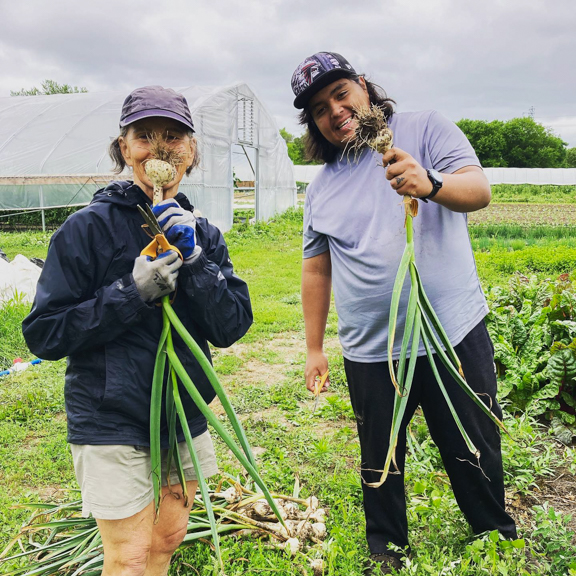
Daithi explains that one of the main reasons the targeted approach has been successful is because it engages partners who have many years of relationship building within communities, such as WECA which has deep relationships with early care and education providers in Milwaukee’s inner city. “We don’t just helicopter into a neighborhood and say, ’Hey, we’re going to bring you fresh food.’ We build on what already exists.”
Building early care and education providers’ capacity
Another vital component of farm to early care and education is listening to and engaging providers. Recognizing that early care and education providers are often juggling multiple responsibilities on limited budgets, Rooted tries to make it easy to integrate farm to early care and education into day-to-day activities. They develop free resources – in English and Spanish – about purchasing local foods, teaching hands-on nutrition, gardening with young children and engaging families.
For example, Rooted created Let’s Go to the Farmers’ Market!, a handy guide for providers to understand the ins and outs of visiting and purchasing at farmers’ markets. With the Center for Integrated Agricultural Systems, they produced Celebrating Seasonality: Wisconsin-grown Recipes for the Early Childhood Setting, an interactive webpage and printable booklet that includes 12 kid-friendly recipes featuring local fruits and vegetables throughout the year.
Rooted also facilitates trainings to support providers’ professional development and networks providers with each other. An important outcome is providers and families learning alongside children.
“Introduction of food access is not just for the kids, but is also for adults, so they start to have conversations and get familiar with how food is produced,” says Dadit. “By the third or fourth week [of farm to early care and education programming], staff and families are learning and want to do more with nutritious food.”
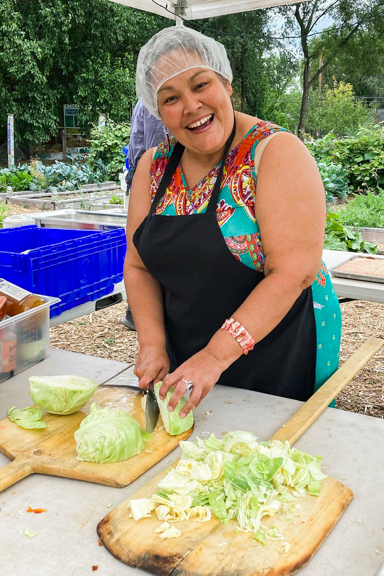
Linking to local food
Community gardens can extend farm to early care and education programming into neighborhoods. Rooted aims to have one in every neighborhood in Madison so children can bring their families there. At the gardens, they host multicultural meals reflective of the cultural diversity of the surrounding community. Some gardens donate their fresh produce to early care and education centers for families to take home.
Farm to early care is kind of like full circle or like ripple effects, it's improving nutrition security for the community at large, starting with kids."
Audra Wieser, early care and education director at The Parenting Place
“Farm to early care is kind of like full circle or like ripple effects, it’s improving nutrition security for the community at large, starting with kids,” says Audra Wieser, early care and education director at The Parenting Place, a family resource center and a Child Care Resource & Referral agency.
Still, it can be challenging for early care and education providers to connect with local farmers, producers and food hubs. Smaller providers may not purchase enough to make it worthwhile for local farmers, or providers may lack connections to local food sources.
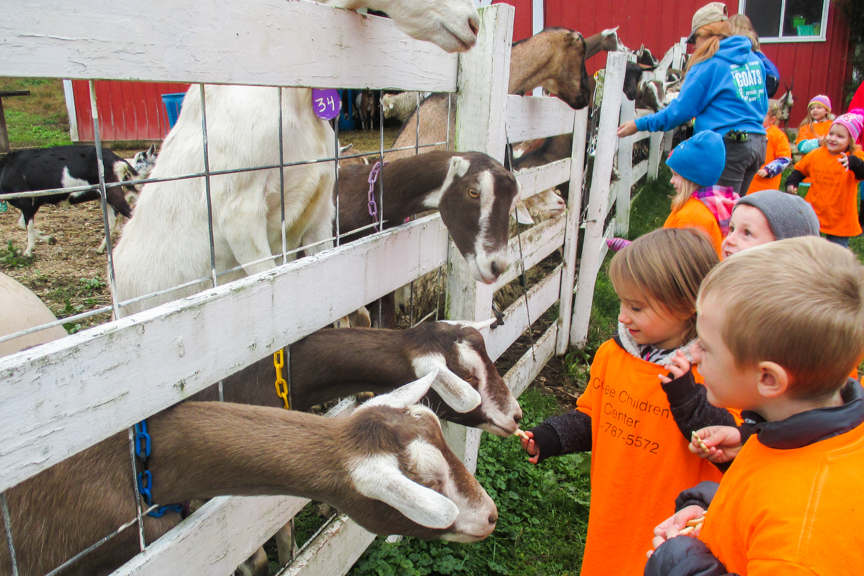
To aggregate demand, Kids Forward, The Parenting Place and the Wisconsin Early Education Shared Services Network teamed up to pilot bulk food purchasing among six family child care sites in Monroe County. Working with Fifth Season Cooperative in Viroqua, the six sites combined their purchasing to get fresh produce, dairy products, meat, honey and much more.
Kids Forward also collaborated with FairShare CSA Coalition to offer “Partner Shares” to 11 child care programs in four counties. A 50% subsidy enabled the early care and education providers to procure fresh produce on a weekly basis and make connections with local farms.
“We purchased CSA shares – community supported agriculture veggie boxes – for several different providers in our area. One of the growers was Los Jalapeños CSA, run by Latinx people, and several child care programs were Spanish speaking,” says Daithi. “It was a really nice connection, where they shared the same language, culture and food.”
Creating the foundation
At the state level, farm to early care and education is taking root. The partners have been successful in advocating for a full-time coordinator of farm to school and early care within the Department of Agriculture, Trade and Consumer Protection. They have pushed for investments in Wisconsin’s early care and education field to support families, communities and the economy. And, they have leveraged farm to early care and education to meet requirements of the state’s quality rating and improvement systems (QRIS), YoungStar.
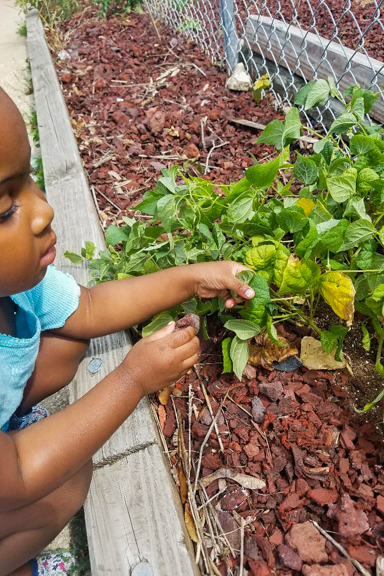
Through an evaluation, the UW-Madison Center for Integrated Agricultural Systems (CIAS) has seen, “with a little bit of money, technical assistance and peer support, early care and education centers are able to get successful farm to early care and education programs going with tremendous impact on kids’ health and well-being,” says Vanessa Herald, senior farm to institution outreach specialist at CIAS.
“I feel grateful that I get to be in values-based workspaces and improving and changing systems, hopefully radically one day. That is at the heart of raising kids who have strong nutritional foundations for long lives.”
Vanessa Herald, senior farm to institution outreach specialist at CIAS.
Lessons Learned
The Wisconsin partners are intentionally focusing on communities who haven’t had access and opportunity. “How we connect the local food movement to social justice is by talking with underserved communities, learning from them and finding new ways to create access to nutritious food,” Dadit says.
Needs vary. Some early care and education providers have said the biggest barriers in starting programs are kitchen supplies, like cutting boards, refrigerator and storage space, and recipes to help form their nutrition programs. In other instances, providers of color don’t have familiarity or connections with local food producers because systematic racism has created inequities in education, health, and food availability and affordability.
Successful farm to early care and education programs make procurement easy for both provider and farmer. Some examples of this are early care and education providers working together to buy from farmers in bulk, offering parents the opportunity to purchase CSA boxes as part of the center’s order, organizing pop-up farm stands at centers, and aggregating demand with the K-12 school system.
In Wisconsin, having a statewide coordinator has helped connect organizations and groups across health, education and food systems who weren’t previously working with each other. Together, they’ve developed creative solutions to advance farm to early care and education. WKKF has supported capacity building in Wisconsin by funding statewide coordination and collaboration efforts.
Since 2015, the W.K. Kellogg Foundation has invested more than $18 million in a five-year, five-state pilot for farm to early care and education to support healthy children and sustainable local food systems. This story was made possible by interviews with Wisconsin partners: Center for Integrated Agricultural Systems (CIAS), Kids Forward, Parenting Place and Rooted.
Explore More About Farm to Early Care and Education
Across the country, providers, local farmers, community organizations, state agencies and other partners are coming together to develop successful farm to early care and education programs.

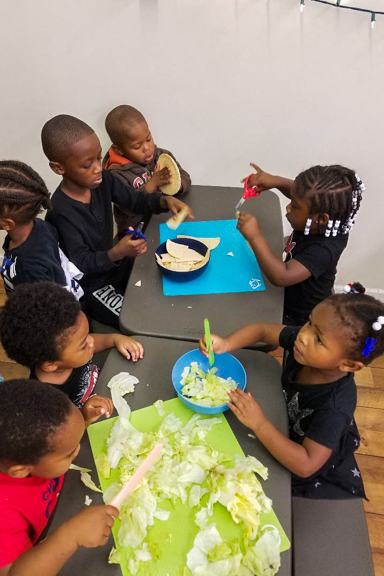
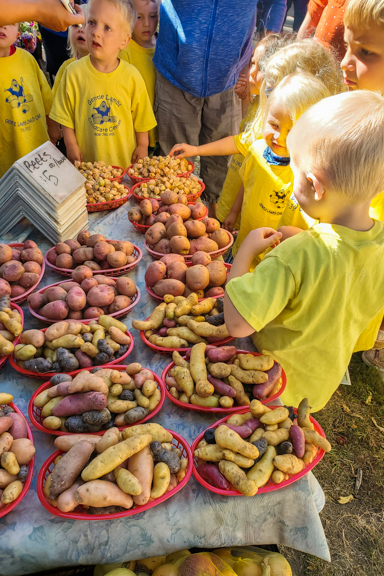
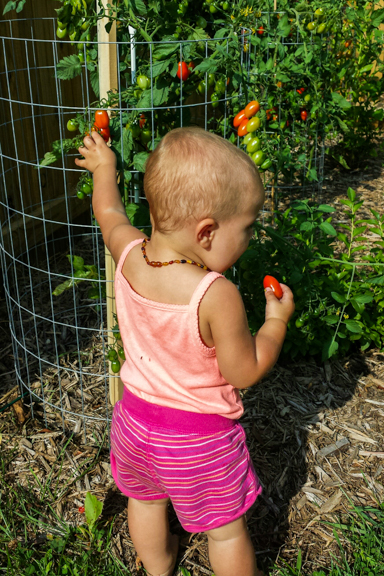
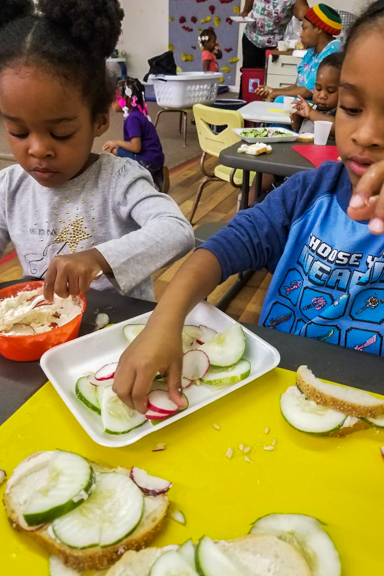
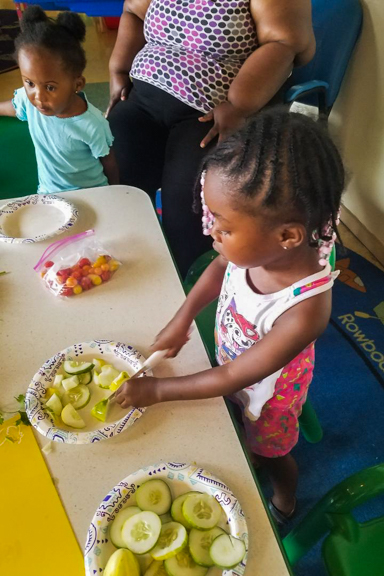

Comments